Who Was Oppenheimer?
The Father of the Atomic Bomb
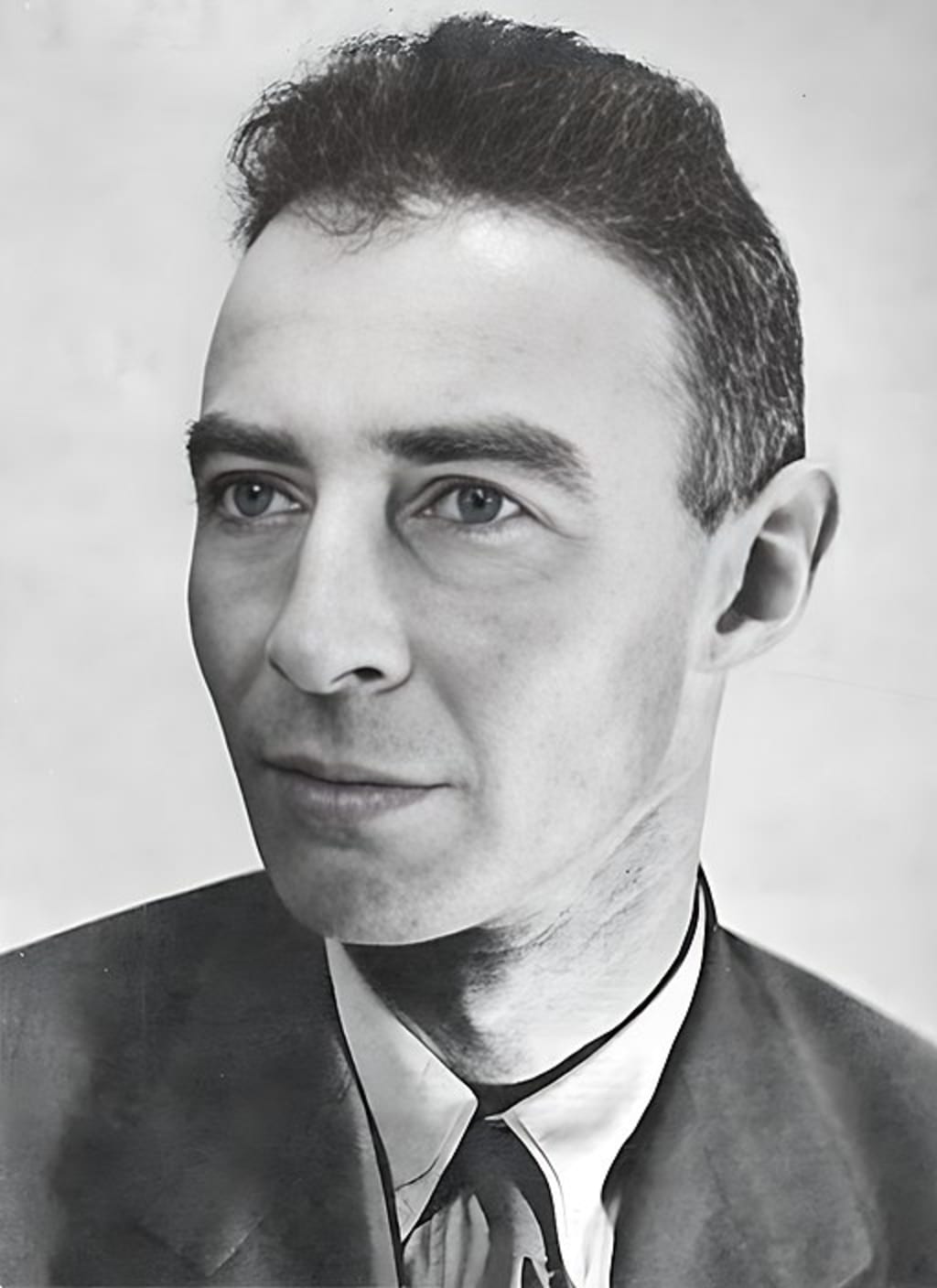
Christopher Nolan’s highly anticipated film “Oppenheimer” has sparked renewed interest in one of the most influential figures of the 20th century, J. Robert Oppenheimer. This visionary scientist played a pivotal role in the development of the atomic bomb during World War II.
Join us as we delve into the life of Oppenheimer, from his upbringing to his involvement in the atomic bomb project, and explore the profound impact of his work on the world.
Where was Oppenheimer Born?
J. Robert Oppenheimer, born on April 22, 1904, in New York City, came from a family of German-Jewish immigrants. His father’s influence, a successful textile importer, provided him with a privileged upbringing and access to quality education.
Oppenheimer’s intellectual brilliance shone through early on, leading him to study at prestigious institutions like Harvard University and the University of Göttingen in Germany.
Who was Oppenheimer’s Wife?
J. Robert Oppenheimer was married to Katherine “Kitty” Puening Harrison. They met in the early 1930s when Oppenheimer was a young physics professor at the University of California, Berkeley.
Kitty was a talented artist and a former student of art history at Stanford University. They crossed paths at a mutual friend’s house, and their connection was immediate. Despite coming from different backgrounds, their shared love for art, literature, and intellectual pursuits brought them closer together.
They eventually married in 1940, and Kitty became an essential part of Oppenheimer’s life, supporting him throughout his scientific career and the tumultuous times of the Manhattan Project.
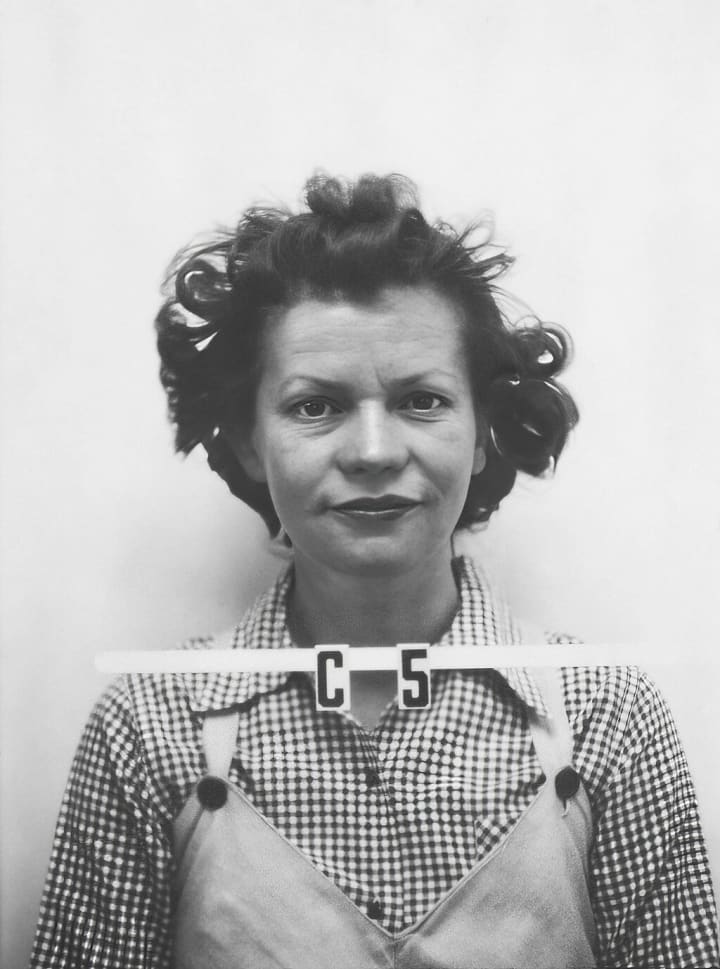
Oppenheimer’s Scientific Prowess
Oppenheimer’s passion for physics and his brilliant mind quickly set him apart in the academic world. He delved into quantum mechanics and astrophysics, making significant contributions to these fields.
His journey as a theoretical physicist laid the foundation for his involvement in groundbreaking research that would change the course of history.
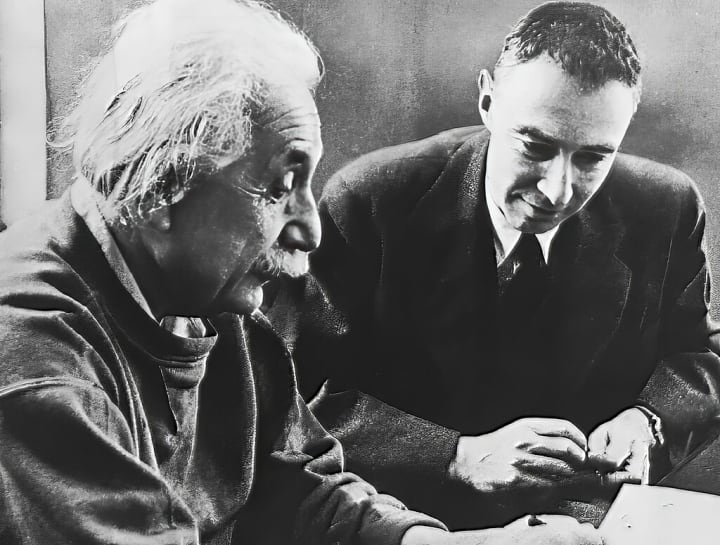
Mankind invented the atomic bomb, but no mouse would ever construct a mousetrap.
— Albert Einstein
What was the Manhattan Project?
With the outbreak of World War II, the United States initiated the top-secret Manhattan Project, aimed at developing an atomic bomb before Nazi Germany could.
Oppenheimer’s scientific expertise and organizational skills led to his appointment as the director of the Los Alamos Laboratory. At Los Alamos, he oversaw a team of scientists and engineers who worked tirelessly to unlock the secrets of nuclear fission.
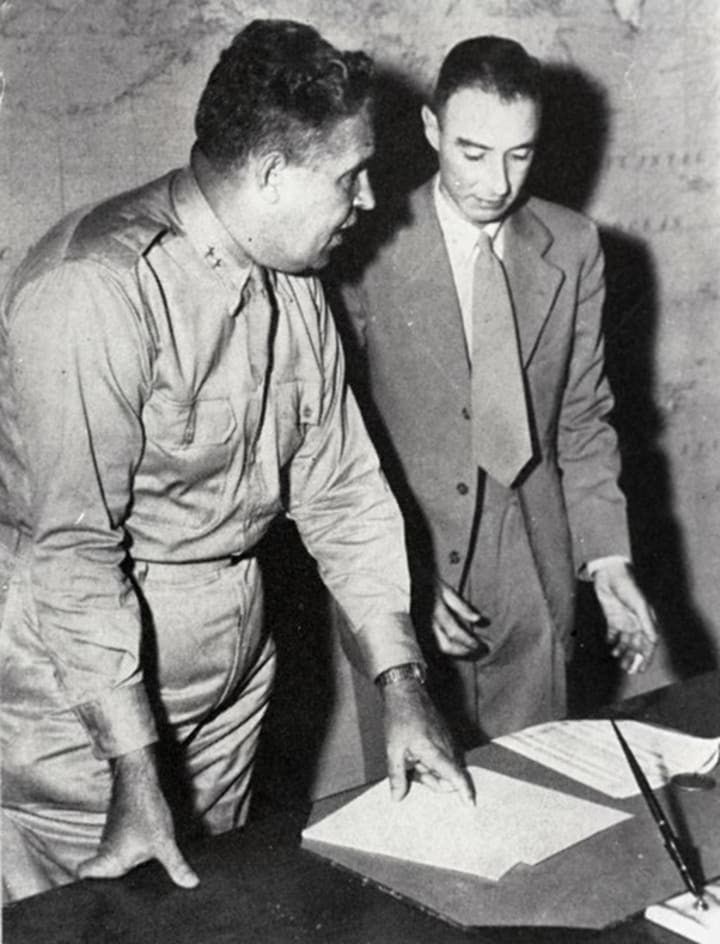
Unleashing the Atomic Bomb
On July 16, 1945, the first atomic bomb was successfully detonated in the New Mexico desert, an event known as the Trinity Test. This marked a momentous milestone in human history, as the world witnessed the immense destructive power of nuclear weapons.
The bombings of Hiroshima and Nagasaki in August 1945 brought World War II to an end but also raised profound ethical and moral questions about the use of such devastating weaponry.
Now I am become death, the destroyer of worlds. (quoting the Bhagavad-Gita after witnessing the first Nuclear explosion.)
— J. Robert Oppenheimer
The Devastation of the Atomic Bomb used in Hiroshima and Nagasaki
- The atomic bomb dropped on Hiroshima on August 6, 1945, killed an estimated 140,000 people, including immediate deaths and later casualties due to radiation exposure and injuries.
- The atomic bomb dropped on Nagasaki on August 9, 1945, resulted in the deaths of approximately 70,000 people, also including immediate and long-term casualties.
- The atomic bombs were used in Japan during World War II to bring about Japan’s surrender and ultimately end the conflict.
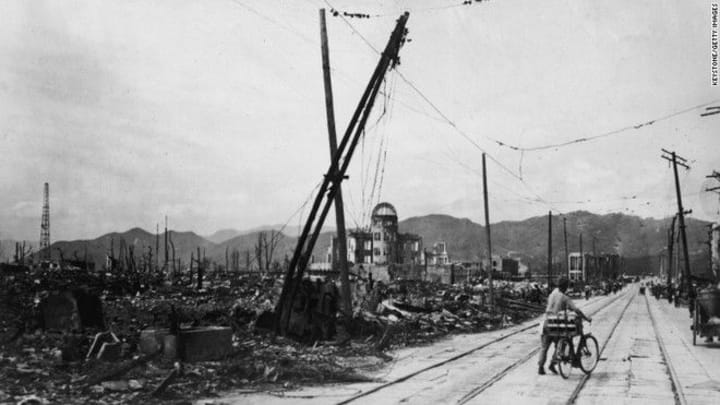
The Impact of the Atomic Bomb on The World
The development and use of the atomic bomb had far-reaching implications for global politics and security. The emergence of nuclear weapons intensified the arms race during the Cold War, with the United States and the Soviet Union engaged in a tense nuclear standoff.
The fear of nuclear annihilation shaped international relations and influenced military strategies during the post-war era.
Christopher Nolan’s film “Oppenheimer” aims to shed light on the complexities of the brilliant physicist’s life and his struggles with the ethical implications of the atomic bomb’s creation.
While historical films often take creative liberties for dramatic effect, the movie provides a compelling portrayal of Oppenheimer’s impact on history. As with any cinematic portrayal of real-life events, viewers should approach the film with a critical eye and use it as a springboard for further research.
The Manhattan Project: The Birth of the Atomic Bomb in the Words of Its Creators, Eyewitnesses, and Historians
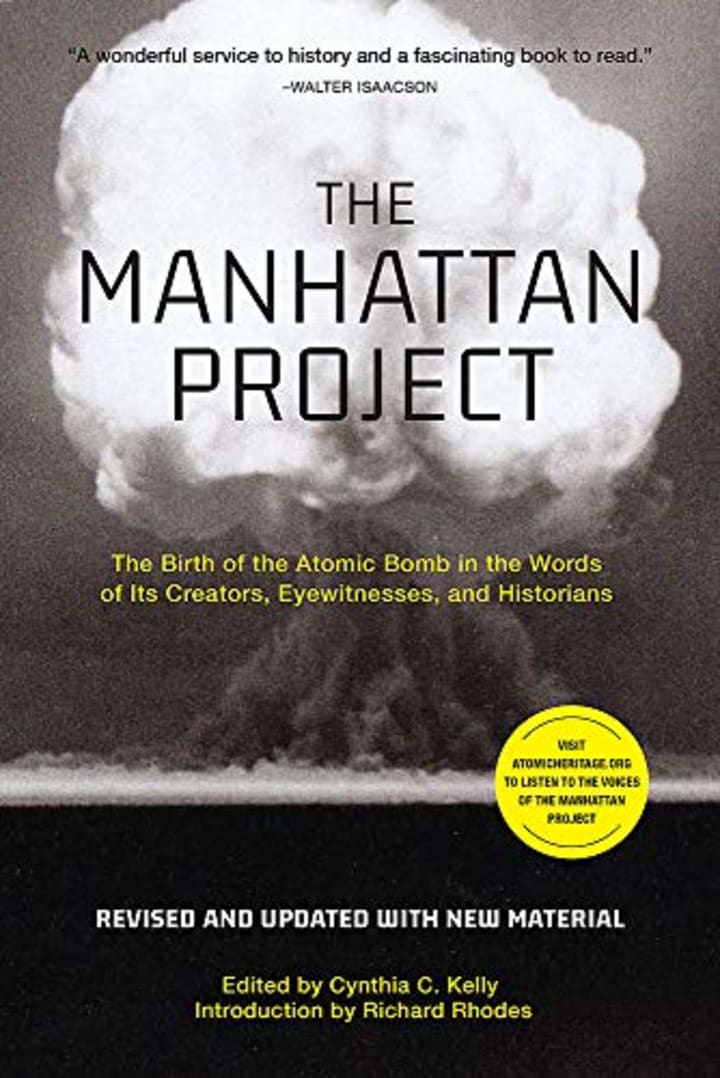
A first-person historical record of the Manhattan Project, and the events leading to the birth of the Atomic bomb, as told by the researchers, scientists, and developers intimately involved in its creation.
Buy Here
J. Robert Oppenheimer’s life and work have left an indelible mark on human history. His journey from a gifted physicist to the director of the Los Alamos Laboratory and the subsequent development of the atomic bomb shaped the course of the 20th century. The use of nuclear weapons in World War II raised profound ethical questions about the responsibilities of scientists and the consequences of their discoveries.
As Christopher Nolan’s “Oppenheimer” film captivates audiences, it serves as a catalyst for exploring the life and times of this enigmatic figure. The movie, while offering a compelling portrayal, should encourage viewers to seek additional information and engage in a deeper understanding of the events that shaped our world.
J. Robert Oppenheimer’s legacy reminds us of the immense power that scientific knowledge wields and emphasizes the importance of using it responsibly for the greater good of humanity.
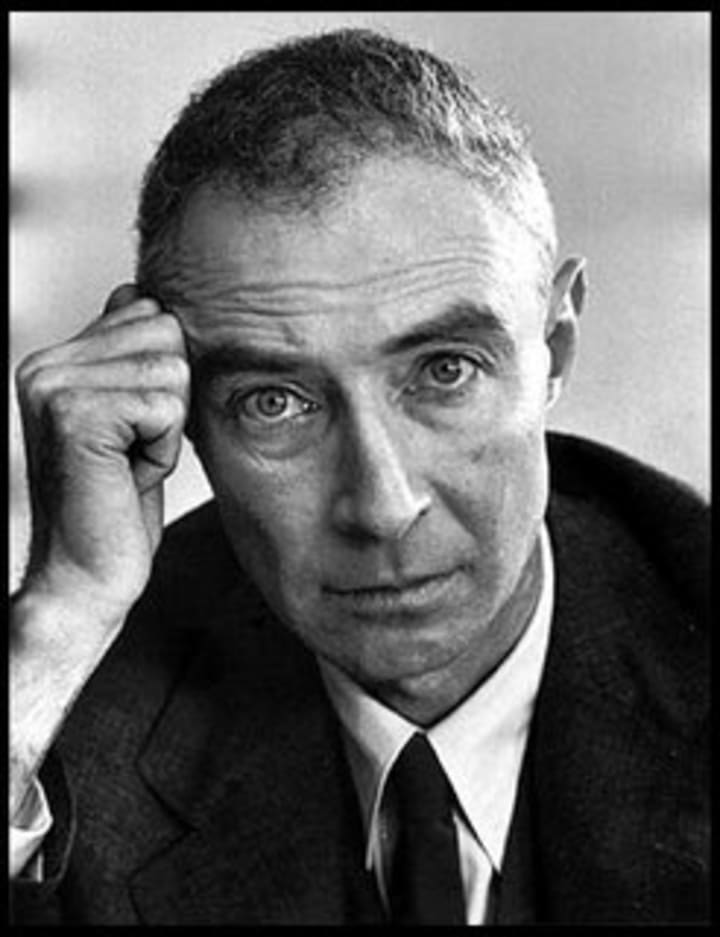
This article contains affiliate links.
About the Creator
Elias Kosmidis
Globetrotting penman, harmonizing adventurer, athletic cinephile. Unleashing captivating tales, blending passions for writing, travel, music, sports, and film.
Elias has been an online writer since 2009.






Comments
There are no comments for this story
Be the first to respond and start the conversation.